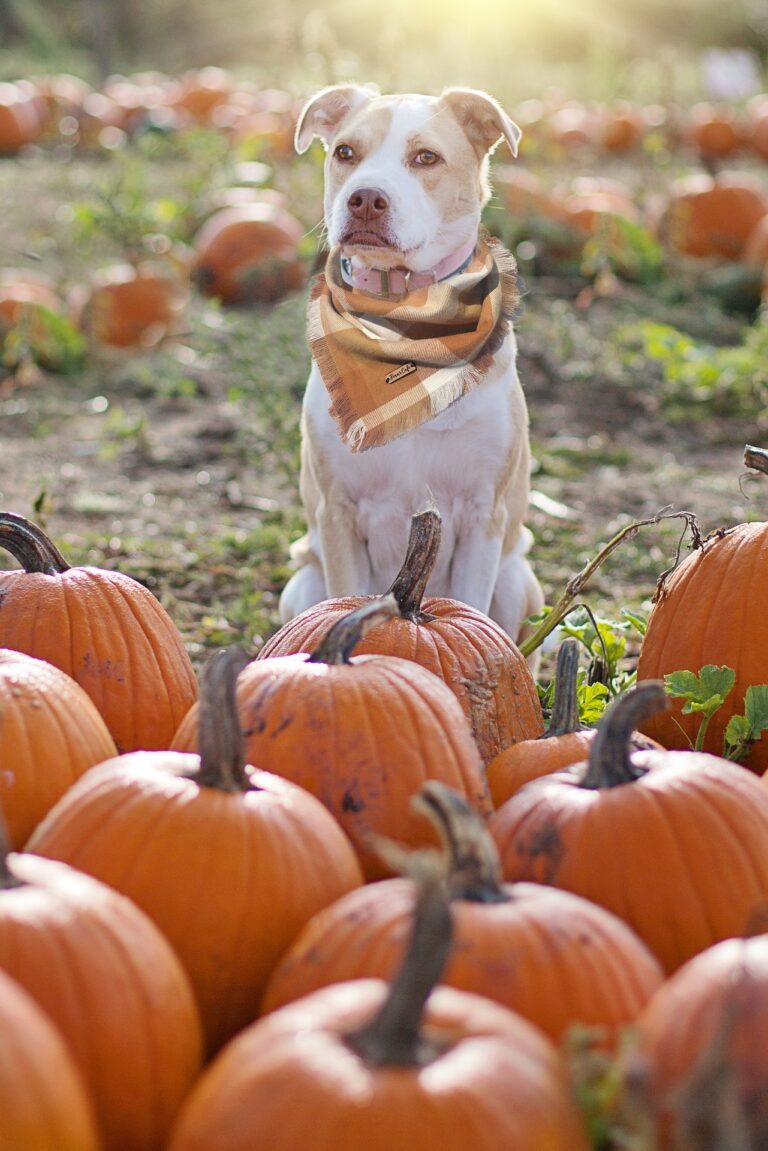You go for a walk with your dog and suddenly he makes his poop. Unfortunately, he has diarrhea! While you try to remove the mess from the sidewalk, you ask yourself: Is my four-legged friend still okay or should I rather take him to the vet? Learn everything you need to know about diarrhea in dogs in this guide.
What Is Diarrhea?
A dog with diarrhea raises questions. For example these: What is diarrhea anyway? Diarrhea is also known in medicine as diarrhea or intestinal catarrh. It is a mushy to thin, sometimes unusually colored and bad smelling stool. Not only humans are affected by this nuisance, but also dogs and many other animal species. Often, diarrhea is only mentioned when it occurs more than once. From this it can already be deduced that the single or infrequent occurrence is not yet a problem.
Dog With Diarrhea And The Possible Causes
Diarrhea is always a sign that something is not right in the digestive tract. The intestines in dogs are similarly complex to those in humans, so they are susceptible to disorders of all kinds[. These can be physical, but also psychological in nature. The list of possible triggers is almost endless. We name the most common ones:
- Wrong food (e.g. spoiled, very fatty, strongly seasoned).
- Drinking polluted water (e.g. from puddles).
- Food allergies or intolerances.
- Stress, fear, excitement, pain.
- Change of diet.
- Side effect of medication.
- Viruses, bacteria, parasites.
- Inflammation of the gastrointestinal tract.
- Hormonal disorder.
- Poisoning.
- Cancer.
You see, from harmless to dramatic, everything is there. In many cases, however, diarrhea is a one-time thing that need not worry you further. Most of the time, dog owners don’t even find out why their dog has diarrhea. Especially if the wrong food is the cause, the guesswork starts. A food diary can then be of great help to you.
Create A Food Diary For Your Dog
By consistently keeping a food diary, you’ll be able to quickly and reliably find out problematic ingredients in your dog’s food. You will discover ready-made booklets in stores, but you can also create a booklet yourself. The main thing is that you have space to write down the following information on a daily basis:
- Feedings: Time, type of food, special ingredients, quantity, weight or volume.
- Symptoms of your dog: time, type of symptoms, severity.
- Medications (if taken): type, amount, time taken.
- Specifics: Stress, strains, incidents, timing of walks, etc.
Keep the food diary for at least one week. In complicated cases, several weeks may be useful. If you do not give your dog with diarrhea the same food every day, you may learn something from the data collected. If you notice a food that does not agree with your four-legged friend, remove it from the menu.
In rare cases, an allergy test at the vet is a good idea.
Alarm Signals With Diarrhea: With These Symptoms Immediately To The Veterinary Surgeon
In the case of diarrhea, a visit to the vet is not mandatory. However, there are a number of alarm signals that you should act quickly and take your dog to the vet’s office right away because of diarrhea.
Your dog has had diarrhea for more than three days? Then it must be clarified professionally. Maybe your friend is suffering from a disease that needs treatment.
A puppy with diarrhea should always be under special observation. If the puppy with diarrhea is dropping liquid or mushy feces more than once in a day, it is a clear indication of a serious problem.
Blood in the stool is worrisome. While there may be harmless triggers, a closer examination is essential.
Abdominal pain is unpleasant. In a dog with diarrhea, they are also a distress signal. A dog with pain curls up or assumes unusual postures. It is also typical to retreat, for example, to the dog’s den or to an unusual place. Even friendly dogs can react aggressively to belly pain if the human tries to touch the part of the body that hurts.
Caution: if you notice aggressive tendencies such as growling or snapping, do not intentionally touch the dog in the painful area. You may get bitten if you do.
Restlessness, listlessness, fever over 40°C, vomiting and lack of hunger and/or thirst are indications that your dog is suffering from an infection or illness. Help your dog with diarrhea and get him to the veterinarian’s office quickly.
If dehydration (dehydration of the body) is present, your dog should receive veterinary care. But how can you tell?
Recognize Dehydration Of The Dog
A dog or puppy with diarrhea loses more water during bowel movements than during normal defecation. If there are several bouts of diarrhea in a short period of time, this will lead to dehydration. A sick animal sometimes additionally loses its natural sense of thirst and does not drink enough water. This condition can quickly become life threatening.
It is a good idea to regularly check a dog with diarrhea for signs of fluid deficiency.
You can do this yourself at home. Especially the mucous membranes speak a clear language in case of dehydration. The oral mucosa is the first to dry out. Carefully lift a lip and look at it more closely. Does it appear dry? Is your dog salivating significantly less than usual? Do the mucous membranes stick together? These are clear signals that there is a lack of fluid.
In addition, you should try a skin fold test. Squeeze a piece of smooth skin with fur to form a wrinkle and see if it recedes. If it does, your dog’s water balance may still be good. If the wrinkle remains, it is a bad sign. Last but not least, sunken eyes are an indication of dehydration.
Dehydrated dogs rarely show all of the above signs.
FAQ About Diarrhea In Dogs
Diarrhea in dogs is annoying. But also problematic?
What To Do In Case Of Persistent Diarrhea In An Adult Dog?
Offer the dog water and control the fluid intake. Especially puppies, seniors and underweight dogs dry out easily. Otherwise, the key is to remain calm. Dogs often suffer from diarrhea. Most of the time, this is normal and not worrisome. Only after three days without improvement or when the above alarm signs appear, you should immediately consult a veterinarian.
Why Does My Dog Have Diarrhea Regularly?
Regular diarrhea may indicate that your dog is getting the wrong food or incompatible treats. If the dog alternates diarrhea and normal feces, it also indicates occasional stress or anxiety. Observe your dog more closely to find out the real cause. If nothing else helps with stressed dogs, there is nothing wrong with a good tranquilizer.
How Long Can A Dog Have Diarrhea Before It Becomes Critical?
After the third day of diarrhea it becomes critical. Then at the latest you should go to the vet. However, if your dog is old, sick, injured or weakened, it makes sense to do so much sooner. Also, look for signs of dehydration, which may require a drip. What you should look for, we have explained above in the guide.
What Does Yellow Diarrhea Mean In Dogs?
Yellow diarrhea could be an indication of an infestation with Giardia intestinalis. The widespread parasite causes the so-called giardiasis. It is a diarrheal disease. The feces of affected dogs are yellow in color, have a foul odor and are thin to mushy. Puppies, young dogs and shelter dogs are often affected by Giardia. The parasites can be easily controlled with strict hygiene and medication.
What does slimy diarrhea in dogs or a slimy coat mean?
Slimy diarrhea in dogs can also be an indication of giardia. But not all mucus is the same. A disease or inflammation of the intestine is also conceivable. The bacterium Clostridium difficile causes the disease “Pseudomembranous Colitis”. In addition, other causes are conceivable when mucus diarrhea occurs in dogs – from stress to allergies to intolerances.
What To Do About Mucus In Dog Feces?
Mucous diarrhea in dogs? This must be clarified by a veterinarian. He should test the animal for parasites and initiate treatment if necessary. In case of allergies and intolerances, the problematic food must be found and removed from the diet. A gut-friendly food will help your dog through this difficult time. Look for high quality
foods and plenty of nutrients and fiber. Avoid anything that is not good for the dog, for example bones.
FAQ About Diarrhea In Dogs And Nutrition
What to feed when diarrhea appears in the dog? Does rice or oatmeal help with diarrhea?
What Do You Give A Dog With Diarrhea?
A dog with diarrhea should always have a bowl full of fresh water. Encourage him to drink. Otherwise, a strict food break is in order. One to two days of fasting will do good now. Every morsel could trigger diarrhea again. Also treats are taboo. Afterwards follows Schonkost for some days, in order to bring the intestine again in swing.
Veterinarians provide you with special food or Barf recipes that are tailored to your dog. They usually contain ingredients such as lean chicken, cottage cheese, carrots, potatoes and cooked rice.
Oatmeal For Diarrhea: Are They Good For The Dog?
Oatmeal for diarrhea seems to be good for many dogs. Responsible for this are probably the dietary fibers. These soak up with the excess fluid in the intestine and thus lead to a normal bowel movement. Psyllium seeds are also suitable.
But beware: mucous diarrhea in dogs is alleviated, but you do not eliminate the cause with oatmeal for diarrhea.
Why Not Feed Rice To A Dog With Diarrhea?
Oatmeal for diarrhea is too easy? Go ahead and feed rice to your dog with diarrhea after he has fasted for twelve to 24 hours. The grains are well tolerated. However, the rice must be cooked. Undercooked or half-cooked rice will continue to swell in the stomach and cause additional stomach pain. Did you know that rice is often contaminated with arsenic? Wash the rice thoroughly before cooking.
What Food If The Dog Has Diarrhea Again And Again?
Chronic diarrhea in dogs must be presented to a veterinarian. Your dog is probably suffering more than you realize. The experts at the vet’s office will probably provide you with a diet plan that you should stick to consistently. There are also special diets that are easy on your four-legged friend’s digestive organs, such as chicken, rice and oatmeal for diarrhea. A permanent diet is not advisable, as your dog will not get enough nutrients.
FAQ About Diarrhea In Puppies
Even the smallest can be affected by diarrhea.
Is It Normal For A Puppy To Have Diarrhea?
A puppy with diarrhea is nothing unusual. One-time incidents are hardly worth mentioning. It becomes concerning when the puppy is more severely affected. Pay attention to whether he shows other symptoms of an illness and how long and how violent the complaints last. Then you should go to the vet as soon as possible.
What Causes Diarrhea In Puppies?
Often it is due to mother’s milk weaning and dietary changes. Stress that comes with moving to a new home also hits digestion. As with adult dogs, it’s possible that your puppy with diarrhea has a health problem. He could have eaten something harmful, be suffering from parasites, or be sick.
What Should Puppy Feces Be Like?
Puppy feces should be like that of an adult dog: firm, moist and dark brown. If you find it easy to pick up, with no residue on the ground, it is a good indicator of your puppy’s health.









